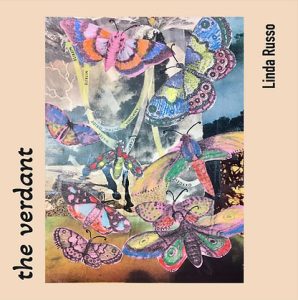The Westchester Review – 2009
Volume 3
2009
Annual
Sima Rabinowitz
“A literary journal from the Hudson to the Sound” (that’s the Hudson River and the Long Island Sound in New York, where Westchester County is located. These suburban communities make up one of the wealthiest counties in the country, bordering one of the poorest). The annual invites submissions from writers living, working, or studying in Westchester. I hadn’t heard of any of this year’s contributors, but it’s clearly my own limitation, not their lack of credentials. About half of the issue’s writers have published a great deal, including poet Llyn Clague of Hastings-on-Hudson whose fourth book is just out; Kevin Kegan of White Plains whose published five novels; David Hellerstein of Larchmont, a physician and writer whose essay collection will be published by Kent State University Press; poet Joe Landau of New Rochelle, whose third book is due out this year; Boria Sax, author of numerous volumes; poet Rachel M. Simon, whose Theory of Orange won the Transcontinental Prize from Pavement Saw Press; and Mark Wisniewski, whose fiction has appeared in such prestigious journals as Poetry, TriQuarterly Review, and Southern Review and appeared in Best American Short Stories 2008.
“A literary journal from the Hudson to the Sound” (that’s the Hudson River and the Long Island Sound in New York, where Westchester County is located. These suburban communities make up one of the wealthiest counties in the country, bordering one of the poorest). The annual invites submissions from writers living, working, or studying in Westchester. I hadn’t heard of any of this year’s contributors, but it’s clearly my own limitation, not their lack of credentials. About half of the issue’s writers have published a great deal, including poet Llyn Clague of Hastings-on-Hudson whose fourth book is just out; Kevin Kegan of White Plains whose published five novels; David Hellerstein of Larchmont, a physician and writer whose essay collection will be published by Kent State University Press; poet Joe Landau of New Rochelle, whose third book is due out this year; Boria Sax, author of numerous volumes; poet Rachel M. Simon, whose Theory of Orange won the Transcontinental Prize from Pavement Saw Press; and Mark Wisniewski, whose fiction has appeared in such prestigious journals as Poetry, TriQuarterly Review, and Southern Review and appeared in Best American Short Stories 2008.
It wasn’t these writers’ work that most interested me, nevertheless, in this issue of the Review. I was thoroughly taken, instead, with a disturbing little graphic story, “The Substitute Lifeguard,” by Galit Seliktar and her brother, the story’s illustrator, Gilad Seliktar, translated by Ronen Altman Kaydar. Seliktar, a native Israeli, is a librarian at a synagogue in Westchester, and her writing has been published in Israel, but appears in a US publication for the first time here. The story is oddly captivating. A baby drowns (or may have drowned, the conclusion is ambiguous) while guests at a yard party eat and/or flirt, in the case of the story’s teenaged protagonist. The text is skeletal, the bare bones of a narrative. The drawings are fine lines, ominous shadows, and precise detail that render plants, water, eye movements, a comfortable household, a doctor’s distress, the family pet, and a baby floating on the bottom of a pool with uncanny realism.
Unlike the cartoonish and overblown quality of much graphic fiction, large themes squashed into small frames that read horizontally, this story is comprised of unframed illustrations that read vertically and blend into each other through a masterful manipulation of shadow and white space. The tiny, spare hand-printed text lines float, almost like afterthoughts – or like the dead baby – in this space. This is a highly unusual and original graphic story. (This may, of course, be the style and conventions of graphic stories published in Hebrew in Israel, with which I am unfamiliar.)
Another memorable contribution, by a poet with a more modest publication history than those cited above (in fact, her bio cites no publications at all), is “Take Away,” by Rosetta Brown. It might be easy to dismiss this poem for its persistently casual tone (though it is not, in that way, different from many much-loved poems, some quite fine) in these lines that equate subtraction in math with loss of life (“Some say God takes away. Felicity was taken away / last month.) But Benson surprises me with a couplet so splendid, I am grateful not to have overlooked it: “My favorite was that labyrinth of faith: geometry. / You enter knowing someone has been there before you.”
The Westchester Review is only published once a year. That’s a long time to wait for another poem of Brown’s.
[www.westchesterreview.com]




